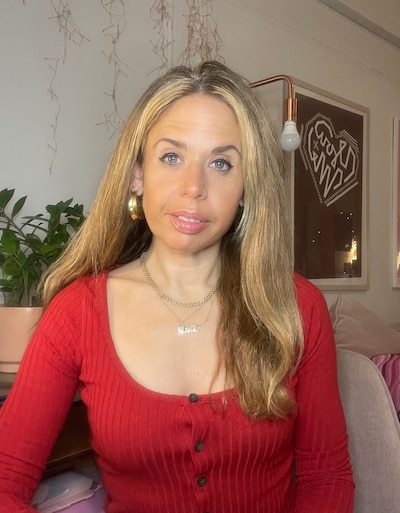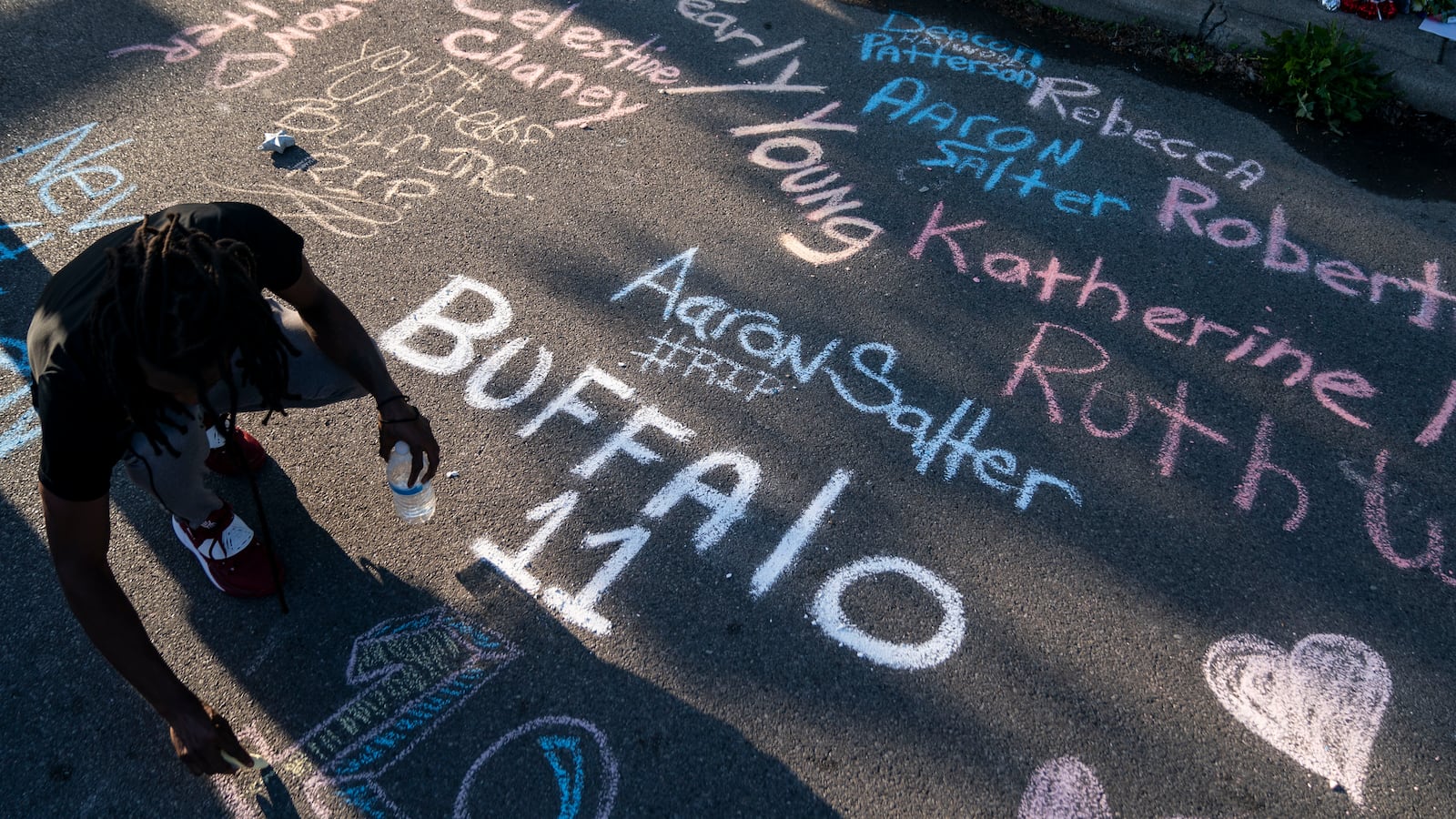In my nearly 20 years of teaching U.S. history at a public high school in New York City, I have made it my mission to teach the truth in my class and link current events to what we are learning in the curriculum. So this past weekend, following one of the deadliest racist massacres in recent history, I found myself once again grappling with how to discuss a horrific mass shooting at a supermarket in a predominantly Black neighborhood of Buffalo, New York.
I couldn’t help but reflect on what parts of these class conversations would be banned (or even just discouraged) if I did not teach in New York City. I also worried about the dangerous repercussions of proliferating state laws limiting what teachers can say about racism in America.

Here in New York, thankfully, I can address what happened and connect it to topics related to racism that we’ve been studying all school year. For example, just this past Friday in my AP U.S. History classes, we finished watching Spike Lee’s 2018 film, “Black KkKlansman” about a Black police officer who infiltrated the Ku Klux Klan. My students were riveted and rightly sickened by the rampant racism and antisemitism of the clansmen depicted.
I chose this film for two reasons: Students were particularly interested in Reconstruction and the civil rights movement and the film does an excellent job linking themes from these units to modern times. Also, after the AP exam, I typically assign a project asking students to connect a current issue to something we explored in class; this film models one way to connect past to present.
Although set in 1972, the film explores many topics that were front-page news last weekend, thanks to the white supremacist ideology that expressly motivated the alleged Buffalo gunman, and specifically the Great Replacement Theory. Unsurprisingly, that far-right racist and antisemitic conspiracy theory — that people of color and immigrants will replace white populations and destroy Western civilization — is discussed nonstop by the KKK members in “Black KkKlansman.” (These days, the Great Replacement Theory is also standard fare on Tucker Carlson’s primetime Fox News show.)
In class this week, I will address this dangerous ideology and relate it to what we learned in our civil rights unit, which featured the words of leaders such as Dr. Martin Luther King Jr., John Lewis, Malcolm X, and Stokely Carmichael. We will recall the PBS documentary, “Eyes on the Prize,” and reflect on the racial violence civil rights activists faced as well as the changes those activists helped bring about.
In class this week, I will address this dangerous ideology and relate it to what we learned in our civil rights unit.
I will also connect the massacre in Buffalo to a framing lesson we had at the beginning of the school year about “The Invention of Race.” In that lesson, drawn from the antiracist AP U.S. History curriculum, students learned about the ways the idea of race has been used to justify certain racist policies that benefit those in power. Other great resources on the subject of racism include Facing History’s “The Concept of Race,” “Drawing the Color Line” from Howard Zinn’s “A People’s History of the United States,” and “What Is ‘Race’?” an excellent two-minute video from PBS Learning Media.
Throughout this week, I’ll check in with my students, who are primarily BIPOC (with many having experienced racism from a young age), to see how they are feeling about what happened in Buffalo and to address any questions they might have. Whenever addressing triggering and traumatic topics with students, I warn them ahead of time and make it clear that they can leave the classroom at any time or tune out if it is making them too upset.
The U.S. is currently confronting multiple crises: COVID, gun violence, climate change, white supremacy, and systemic racism. It is educational malpractice not to provide the students with time and space to discuss these topics, including Saturday’s shooting. Laws meant to block or dissuade teachers from these conversations are insidious. How can we stop racist conspiracies like the Great Replacement from taking hold if young people can’t even rely on schools to learn the truth?
For teachers facing laws restricting how they teach about race, I suggest Dr. Yohuru Williams’ method of teaching by proxy, or teaching about controversial topics through the lens of other similar historical events. Williams recommends focusing on themes related to a controversial topic, gun violence in America or other incidents of violence throughout history, and then allowing the students to use their own critical thinking skills to make the connections themselves.
In a perfect world, there would be a federal effort to help teachers to circumvent the educational gag orders that so many states are imposing. I am not sure if mandated antiracism education would have helped the alleged Buffalo shooter, who was radicalized online, but there are other young people we could surely reach before it is too late.
My heart goes out to teachers forced to choose between teaching the truth and keeping their jobs. I hope we find a way back to a place where all educators can teach an honest history of America — one that doesn’t shy away from the truth and painful current events like the tragedy in Buffalo.
Sari Beth Rosenberg has been teaching U.S. History and AP U.S. History at a New York City public high school for the past 20 years, and she currently hosts the PBS NewsHour Classroom Educator Zoom series. She writes social studies curriculum and lessons for the New York City Department of Education. Rosenberg has been featured in The New York Times, The Washington Post, USA Today, Axios, Reuters, TheSkimm, and many other outlets. She is the co-founder of Teachers Unify Against Gun Violence and a senior advisor for Voters of Tomorrow. You can follow her on Twitter and Instagram.



